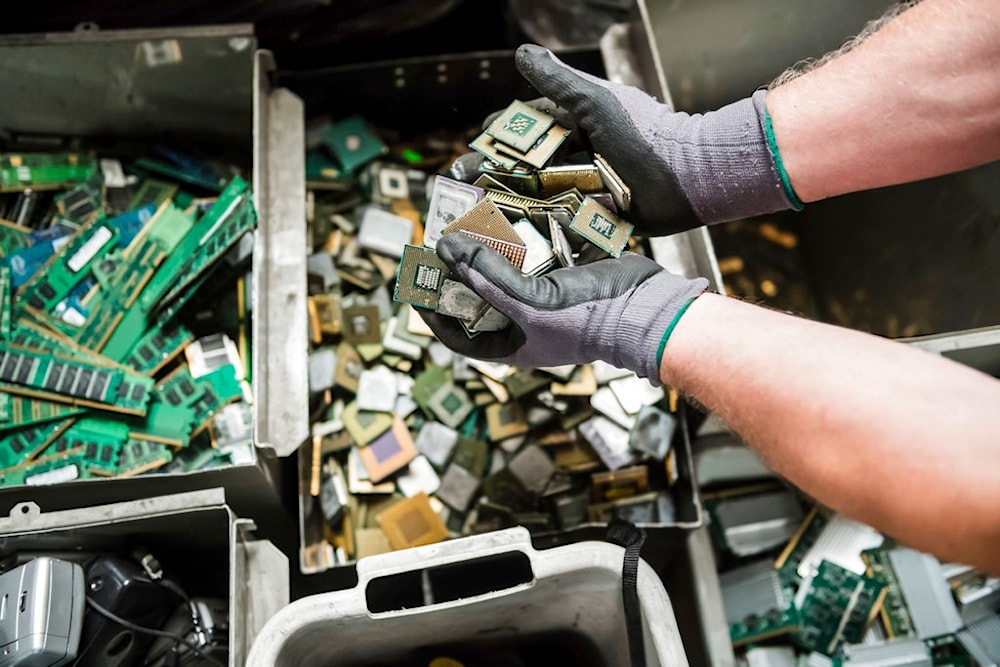UK producers, retailers to pay for consumers' e-waste recycling
The United Kingdom will have producers of electronic goods pay for the cost of household and in-store collections starting from 2026.
-

A worker handles components of electronic elements at the Out Of Use company warehouse in Beringen, Belgium, July 13, 2018. (AP)
The UK government has unveiled plans that will see producers and retailers taking responsibility for financing the collection of electronic goods from households, starting in 2026.
The initiative aims to alleviate the burden on taxpayers while encouraging responsible disposal of electronic waste, ranging from cables to toasters and power tools.
According to the Department for Environment, Food and Rural Affairs (Defra) the new plan will allow consumers to have the option to either schedule pickups for electrical waste (e-waste) from their homes or conveniently drop off items during their weekly shopping trips. The measures are set to take effect in 2026.
Data from Material Focus, a recycling non-profit, shows that nearly half a billion small electrical items ended up in landfills last year, with the issue exacerbated during the holiday season when 500 tonnes of Christmas lights were discarded.
The UK's latest measures build upon efforts initiated during its European Union membership, particularly the Waste from Electrical and Electronic Equipment (WEEE) directive implemented in 2012.
UK lagging behind EU
The directive follows the principle that producers bear the responsibility and cost of disposing of the waste generated by their products.
Despite BREXIT taking place since, the United Kingdom is striving to tackle e-waste. The European Union has implemented policies, including the right to repair products and a mandate for common chargers for phones, to reduce e-waste. The UK, however, lags behind some EU regulatory efforts, particularly in areas like battery processing.
A recent OECD study revealed that the UK failed to meet its recycling targets for household e-waste from 2017 to 2020. Efforts are deemed necessary to prevent illegal dumping and the export of electronic waste, including the introduction of a proposed mandatory waste tracking system.
According to consumer group U-Switch, the UK is one of the leading consumers of electrical items and is second only to Norway in terms of e-waste per capita.
Retailers obligated to collect
The new measures to combat electronic waste include compelling larger retailers to establish "collection drop points for electrical items in-store" for free without requiring consumers to make a new purchase.
Retailers in all forms will be obligated from 2026 to collect broken or discarded large electrical goods, the likes of fridges, upon their delivery of a replacement.
Recycling Minister Robbie Moore emphasized the environmental and economic benefits of the plan, saying, "Every year millions of household electricals across the UK end up in the bin rather than being correctly recycled or reused. This is a sheer waste of our natural resources and has to stop."
"Our plans will also drive the move to a more circular economy and create new jobs by making all recycling simpler," Moore added. To assist consumers in finding convenient recycling points, Material Focus has developed a tool to locate drop-off locations for electronic items.

 3 Min Read
3 Min Read








